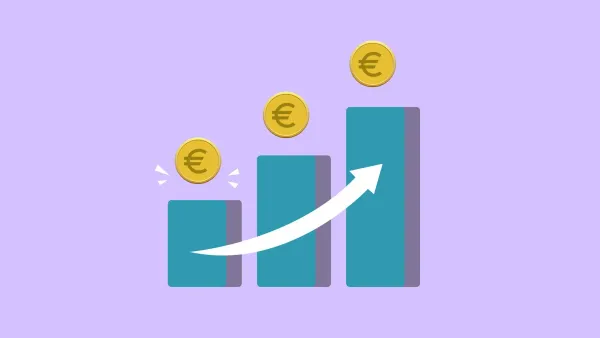
Excess Capacity and Market Fragmentation: Why So Many Trading Platforms Exist
Definition:
In monopolistic competition, firms offer similar but not identical goods. When sufficient time has passed, the market finds itself in a state of “excess capacity,” i.e., more suppliers than the demand can support. This results in fragmentation, fierce competition and jostling to stand, whether it’s through a particular feature, low price, or niche targeting.
Application: Too Many Platforms, Too Few Traders
Platforms that offer access to trading ETFs, crypto, equities, and futures keeps popping up and have reached a fever pitch. Alhough major players such as Robinhood, eToro, and Binance have made a name for themselves, new players like ThinkMarkets continue to enter this market. Each platform boasts some mix of lower fees, more investing choices, or better tools. But how is this sustainable?
Under monopolistic competition, it’s not — not in the long run, anyway.
Many platforms are unprofitable or have barely to nonexistent profits, especially if they are entering crowded geographies or don't have a true unique selling proposition. Yet, the inducements to get in remain strong, especially with global retail trading interest rising since the COVID-19 pandemic. Retail traders now represent 23 percent of total equity trading volume in the United States, up from 10 percent in 2019, according to a 2023 Charles Schwab report. Crypto volumes follow a similar path. Even as the market cools, platforms see enduring potential in what they believe is a generational shift toward self-directed investing.
Why Platforms Keep Launching Anyway
The economic drivers supporting this excess can be classified into three key buckets:
Low Barriers to Entry
White-label infrastructure suppliers have made it easy, and potentially less capital-intensive, to launch a branded brokerage. Turnkey solutions for KYC, custody, trade execution and charting make it possible to launch a trading app in weeks, not years.
Geographic and Regulatory Arbitrage
A lot of new platforms don’t try to directly compete with giants in the U.S. Instead, they target “new” markets (Latin America, Africa or parts of Southeast Asia) where regulation is more lax or fragmented. ThinkMarkets, for example, was aggressive in expanding into Southeast Asia through the provision of multi-asset access and promotion of leverage products which are not possible in stricter jurisdictions.
Specialization to Avoid Direct Competition
Platforms now try to stand out with crypto-first access, synthetic ETFs, ESG-themed portfolios, or integrated education tools. Some focus on specific asset classes, such as index trading platforms that cater exclusively to passive investors seeking low-cost exposure to benchmark indices. These “micro-niches” enable smaller user bases to be monetized through subscriptions, high-frequency trades, or service packages.
Implication: Not All Will Survive
You can get by in the short term, but whether you can survive over time is another matter. Firms under monopolistic competition are sort of squeezed by:
Diminishing Margins
With increasing customer acquisition costs and feature sets that are starting to overlap, platforms have no choice but to spend more just to keep users happy and hold on to them.
Consolidation Pressure
Bigger firms could buy out smaller ones to gain their user bases or tech, as we’ve already seen with Voyager, Blockfolio, and others.
User Fatigue
With so many apps offering virtually the same types of services, switching costs are low—and loyalty is fleeting.
Conclusion: A Crowded Race With a Few Winners
The explosion of trading platforms is an expression of the economic principle of excess capacity. Even with the growing pie of retail participation, too many forks are chasing too few bites. There could be opportunities for firms like ThinkMarkets to carve out regional or functional niches for themselves in the short term. In the long run, however, only the businesses with strong branding, a regulatory foothold, or more useful and differentiated utility will withstand the shakeout.
As the investors, regulators, and users watch this space develop, it is evident that the barrier to entry may be low, but the barrier to sustainability is still very high.


